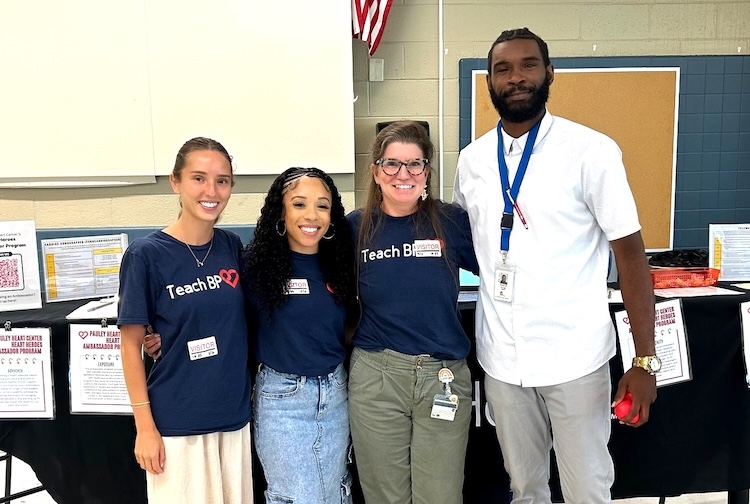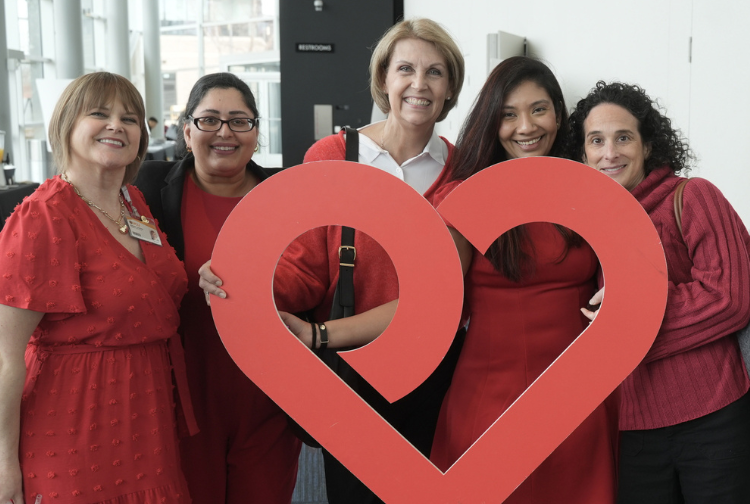A lifelong journey with Virginia’s top heart hospital
After struggling to find the right doctors for her rare birth defect, Maria Jankowski comes home to VCU Health Pauley Heart Center.
May 20, 2025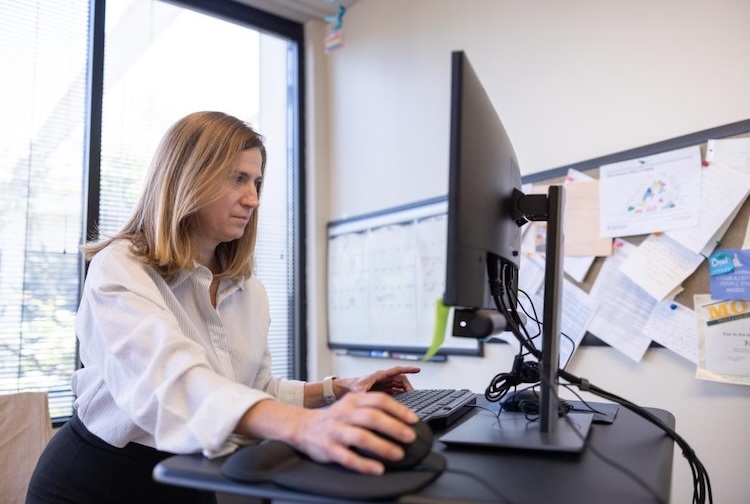 Maria Jankowski is a patient at VCU Health Pauley Heart Center. (Daniel Sangjib Min, MCV Foundation)
Maria Jankowski is a patient at VCU Health Pauley Heart Center. (Daniel Sangjib Min, MCV Foundation)
By Tim Shea
Sometimes people surprise you – that’s one of the many lessons Richmond-native Maria Jankowski has learned in her nearly three decades as a public defender.
A career spent advocating for those who often feel voiceless has reinforced her belief in the power of persistence, compassion and the unexpected ways in which lives intertwine. But one of her greatest surprises wasn’t found in a courtroom – it was in her own heart.
Maria was born with Tetralogy of Fallot, a rare congenital heart defect that hinders the normal flow of blood from the heart to the lungs and requires complex surgical intervention. She came into the world at what is now VCU Health, a place that would shape her future in ways she never could have predicted.
Her mother, Nancy DeNoia, vividly remembers the fear and uncertainty of those early days after giving birth to her first child in 1969.
"You’re just devastated, and you wonder what you did wrong," Nancy said. "But the doctors told me I was lucky that Maria was born here. If I was in a smaller town, they might not have found Maria’s condition so quickly. It was a scary thing, but we learned to cope because we knew we had the best care possible."
Like many children born with heart conditions, Maria’s journey didn’t end after the surgery that saved her life. It was just beginning.
(Tyler Trumbo, MCV Foundation)
The challenge of finding care for congenital heart conditions
As she grew, so did the complexity of her condition. The most common birth defects occur in the heart, affecting about 1% of newborns. Thanks to medical advancements, survival rates have soared, meaning more patients require specialized, lifelong care. But access to that care isn’t always easy to find.
As an adult, Maria struggled to connect with the right specialist. Even in major metropolitan areas like Washington, D.C., finding someone who understood both her unique condition and the challenges of treating adults who were born with heart defects proved difficult. The reality is that many cardiologists are trained to care for either children or adults, but not necessarily adults with congenital heart conditions. It’s a field that requires specific expertise, and for years she searched, often traveling for consultations, feeling like a puzzle piece that didn’t quite fit within the systems in place.
Then she found Sangeeta Shah, M.D.
A doctor, a patient and a shared mission
Shah, a nationally recognized expert, came to VCU Health Pauley Heart Center in 2020 to establish its Adult Congenital Heart Disease program. She knew the urgent need for specialized care, and she was determined to build a program that treated patients and supported them for life.
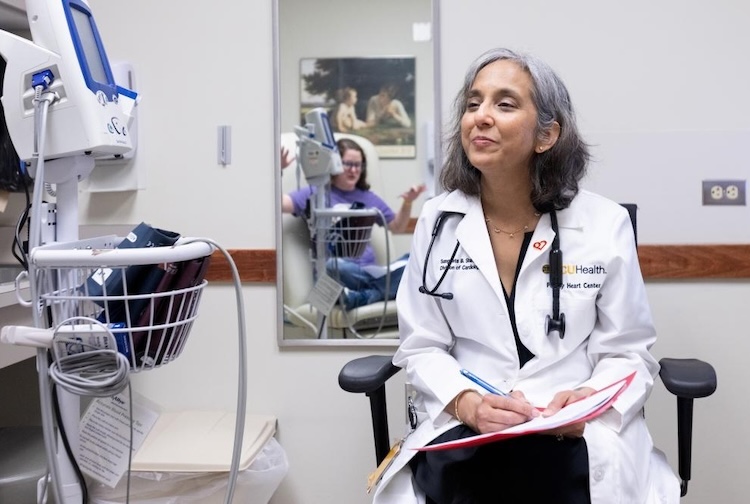 Sangeeta Shah, M.D., is the head of Pauley's Adult Congenital Heart Disease program. (Daniel Sangjib Min, MCV Foundation)
Sangeeta Shah, M.D., is the head of Pauley's Adult Congenital Heart Disease program. (Daniel Sangjib Min, MCV Foundation)
When Maria met Shah, there was immediate synergy – two women, both dedicated to serving others, both deeply committed to their respective fields, and both, perhaps unexpectedly, finding common ground in the intricate world of congenital heart care.
Maria describes the experience of stepping into Shah’s clinic as transformational.
“I spent an entire day there, from the MRI to the echocardiograms to the stress test, and just saw the multidisciplinary team at work,” she recalls. “I knew that I was finally in the right place.”
Over time, Maria grew impressed by Pauley’s clinical excellence and the ethos of Pauley itself. She saw firsthand how Pauley’s leaders were recruiting world-class talent like Shah and launching programs to expand its research, patient care and educational missions.
“This place isn’t just treating patients,” Jankowski said. “It’s investing in the future, in workforce development, in science, in research, in outreach. Pauley does more than practice medicine – it is building a healthier community.”
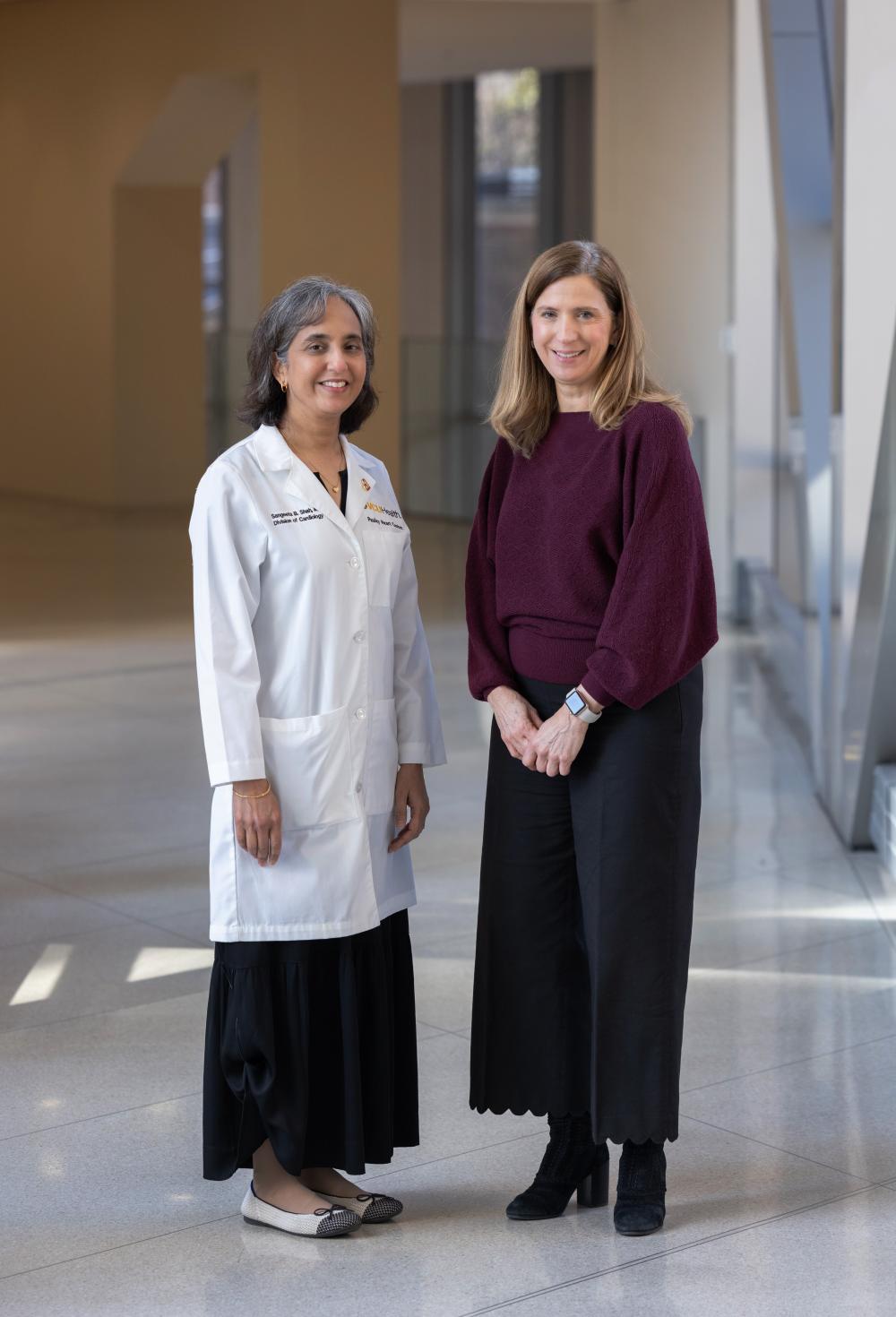 Sangeeta Shah, M.D., and Maria Jankowsi are both deeply committed to their respective fields, and found common ground in the intricate world of congenital heart care. (Daniel Sangjib Min, MCV Foundation)
Sangeeta Shah, M.D., and Maria Jankowsi are both deeply committed to their respective fields, and found common ground in the intricate world of congenital heart care. (Daniel Sangjib Min, MCV Foundation)
Witness to the impact of philanthropy on health care and research
Through receiving care at Pauley, Maria witnessed the broader culture – and impact – of giving. That experience led her to a new role: joining the Pauley Advisory Board, where she now helps guide and advocate for the institution that has been a cornerstone of her life since birth.
Philanthropy has been instrumental in shaping what Pauley is today. Donations to initiatives like the Pauley Society allow center leadership to allocate resources where they’re most needed – whether that’s supporting an innovative research project with pilot grant funding, investing in community outreach, or recruiting and retaining top investigators and clinicians.
Endowed faculty positions, another aspect of philanthropic giving at Pauley, play a crucial role in this mission. Endowed chairs and professorships give Pauley leaders resources to recruit nationally known experts who will drive the evolution of subspecialty fields like adult congenital heart disease.
“Recruiting the best clinicians and researchers means that we’re not just thinking about today – we’re investing in the next 10, 20 years of patient care and discovery,” Shah explains. “It’s how we ensure that Pauley remains at the forefront of cardiovascular treatment and research.”
Creating a medical home base
For Maria, the personal stakes couldn’t be higher. She has spent her entire life navigating the complexities of living with a congenital heart condition, and she knows that for patients like her, having access to expert care is a necessity, not a luxury. She also recognizes that the work being done at Pauley extends far outside the hospital walls.
“You have great people providing great health care, but you also have this whole research enterprise and faculty leaders reflecting on how we can serve and treat people better,” she said. “Pauley is asking these questions every day.”
Shah echoes that sentiment, emphasizing that central to Pauley’s commitment is the desire to create a medical home base for patients.
“Our goal is to know our patients, to understand their fears, their goals, their hopes,” Shah said. “When I came here, one of my major pillars was to build a program where patients didn’t feel like they were navigating this journey alone. And that’s exactly what we’ve done.”
Leading through service
Maria’s journey has always been one of service – first as a public defender, then as a patient advocate and now as an adviser to the very institution that gave her a second chance at life. For her, the connection between her work and Pauley’s is clear.
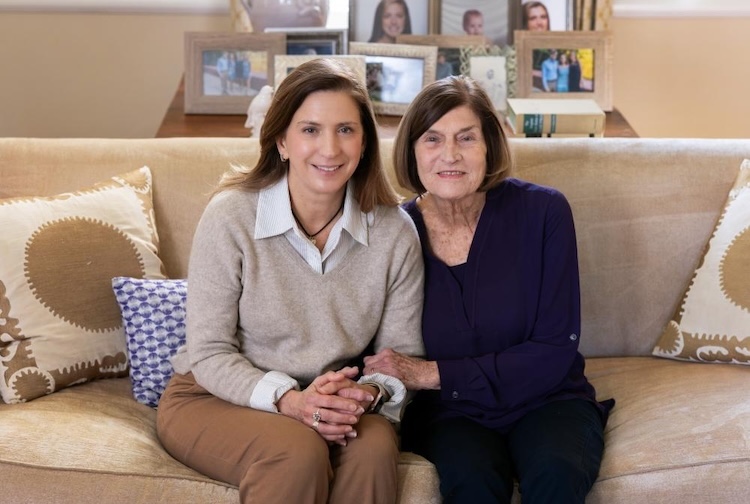
Maria Jankowski with her mother Nancy DeNoia. (Daniel Sangjib Min, MCV Foundation)
“You can’t have a thriving community without good health,” she said. “Pauley is doing the work of keeping people healthy, of making sure they have access to the best possible care. That’s why I’m here. That’s why I give. That’s why this place matters.”
Maria’s mother Nancy DeNoia still marvels at what Pauley has made possible.
“The care that she got was remarkable,” she said. “The fact that Maria was born there with this heart condition 55 years ago, and today she’s a healthy, productive adult who helps people less fortunate than she is – it’s just so important.”
It’s that legacy – of care, of community, of continuity – that Maria now helps to protect. And it’s why she continues to return to the place where it all began.
A version of this story was originally published by the MCV Foundation
Inspired by Maria’s story? Read more about our patients and providers


